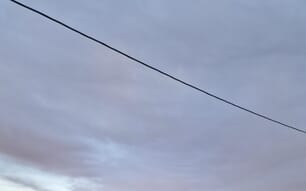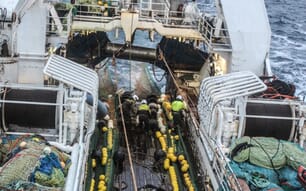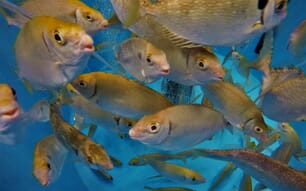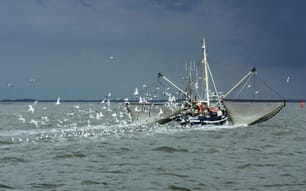On the eve of the annual negotiations in Brussels to decide upon quotas and fisheries management measures for 2009, the Scottish Fishermen’s Federation is warning that draconian EC proposals to effectively close fishing on the West coast of Scotland are ‘politically and economically unacceptable’ and will be fiercely opposed.
The EC is proposing a zero catch for cod, haddock and whiting on the West coast of Scotland and is calling for the mainstay langoustine fleet to use separator grids to divide the catch from other fish species – despite such grids not being appropriate for the West coast fishery.
Bertie Armstrong, SFF chief executive, said: “We recognise that the West coast cod, haddock and whiting stocks are in a poor state and action is needed to aid their recovery.
“But the langoustine stock is in a healthy state and the proposal for separator grids for the fishery, which is the bread and butter of the west coast fleet, will effectively close fishing down on the West coast. This would be politically and economically unacceptable and will be opposed at industry, Scottish and UK government levels.
“We are instead calling for a more sensible approach to the management of the fishery by advocating the use of more selective trawls that will enable whitefish to escape from the net whilst still retaining the valuable langoustine catch.
“Over the last few years, Scottish fishermen have pioneered a series of initiatives that has delivered tangible results in terms of stock conservation. We are calling on the EC to give due recognition of our efforts and to accept our alternative conservation proposals.
“Other whitefish stocks on the west coast – megrim and monkfish – are in a healthy state and uplifts in their quota would be appropriate for continued sustainable harvesting.”
Many quotas in the North Sea have already been decided following the recent conclusion of the protracted EU/Norway negotiations, with cod being increased by 30 per cent but haddock down 11 per cent, and whiting and herring cut by 15 per cent each. The North East Atlantic mackerel quota was increased by 33 per cent.
“The decision to increase the cod quota by 30 per cent is a direct reflection of how the conservation initiatives developed by Scottish fishermen are delivering real results,” said Mr Armstrong.
However, a decision has still to be reached at the Brussels talks on the important North Sea and West of Scotland langoustine quotas. Both stocks are healthy, but there is currently disagreement over the methodology used in assessing the stock. This has resulted in an EC proposal to cut the quota by 9 per cent, in the North Sea and 15 per cent in the West. As a priority the UK governments will be calling for a rollover of this year’s quota until the sampling issue is resolved.
A new cod recovery plan was agreed at the November EU Council of Ministers, which resulted in a major sea-change in fisheries management by aiming to reduce the total amount of fish taken from the sea (fishing mortality), as opposed to the previous regime of downward spirals in quota and increased restrictions on the number of days that boats can put to sea.
Once the new system is operational, provided that fishing mortality is reduced, boats should be able allowed to land more fish than at present, which will be more than compensated for by the reduction in discards (marketable fish that are thrown back into the sea because they exceed their quota). The EU/Norway negotiations also agreed a total ban on the discarding of marketable fish from shared stocks.
Mr Armstrong said: “These recently agreed cod recovery measures will prove a major challenge for the Scottish fleet in 2009. We are committed to reducing discards but it is vital that the new rules are capable of practical application.”
West Coast Closure Proposal Draws Wrath
SCOTLAND, UK - EC West coast closure proposal politically and economically unacceptable and will be strongly opposed at Brussels fisheries talks.




